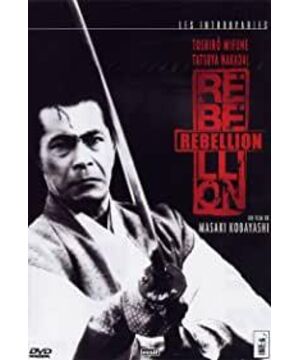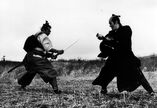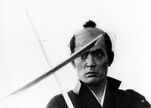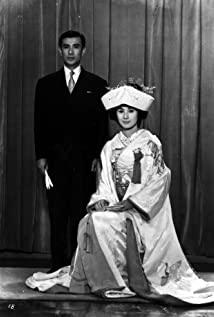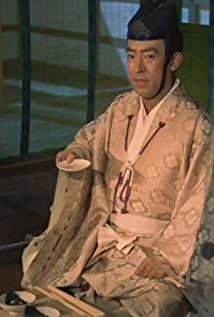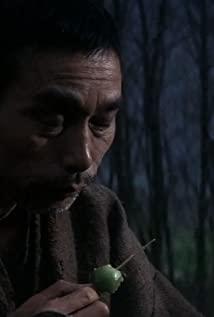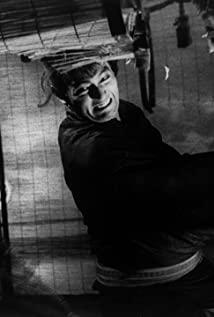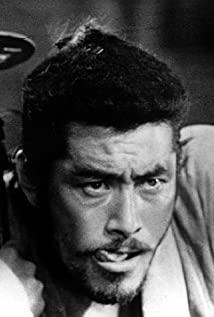At the beginning of the film, Isaburo Sasahara, who is worried about the child's marriage, is drawn. This is a swordsman with excellent swordsmanship, but he is unhappy because of the Sasahara family. He lives in front of some unreasonable wives. Under the pressure of the feudal lord, he had to let the eldest son accept the wife of Ying Qi, who was driven out by the feudal lord. In this film, Ying Qi's fate is an important driving factor in the story. Like women in the feudal era of the East, her fate is beyond her control, because her beauty is favored by the feudal lord, and her fiance cannot bear the pressure to let her be led Go, after giving birth to a son under the domain lord, he was kicked out because of his stubborn and unyielding character. Also, just like the feudal era in the East, men always push a wrong thing onto a weak woman, and Ying Qi takes all the responsibilities and bears a heavy burden. However, fortunately, she met her reasonable father-in-law Isaburo and her husband Goro. Filial and good at housekeeping, she quickly won the favor of her husband and father-in-law. The birth of her daughter Duomi made her life enter a happy track. However, Kobayashi Masaki obviously did not want to tell the story of a woman who lived a happy life through ups and downs. Soon, a powerless turning point in the fate of a woman came. The former lord was lost, and the son of Ying Qi became the new lord, and as a "decent" , she is no longer fit to be the wife of a prince, and so should return to the castle. Ying Qi's fate has become sympathetic and helpless at this time. She has never been able to control her own fate. Her fate can only be controlled by her father, fiance, feudal lord, and even her own son. Ironically, at first she was hurriedly expelled by the lord as a burden and a stain, and at this time she was hurriedly summoned by the new lord, but this did not mean that she was respected, she was The recall is only because, as the mother of the feudal lord, she is not suitable for marrying a prince, and she is once again regarded as a stain, a stain that is eager to be erased. In this way, she was at the mercy of men, and in order to maintain feudal ethics, she was deprived again and again of the happiness that was about to come, and even she had already enjoyed.
The reaction of Isaburo and his son should be said to be beyond the audience's expectations. When Inki was forced to return to the feudal lord, what I expected was that this would be a woman's unfortunate story. However, the story suddenly took a turn here. Isaburo, who once swallowed his voice in front of his wife, took his eldest son to commit the crime, and unyieldingly resisted a social order. Isaburo is undoubtedly an awe-inspiring samurai image in this film. Japanese samurai often appear in novels and movies just like Chinese knights. However, Japanese samurai are often not as free and easy as Chinese knights. A tragic face full of righteousness and swearing to defend dignity appeared. As a first-class samurai at that time and an elder of a family, Isaburo was in love with his son and daughter-in-law, and looked forward to their happiness, especially after his marriage was so unhappy. On the other hand, and perhaps more importantly, a dignity, he could not bear the repeated insults to him and his family by the lord and his subordinates. The story here further captures the audience's attention, when the audience thought that the story would enter a melancholy rhythm, but found that the climax was coming.
Of course, Masaki Kobayashi doesn't want to tell the story of a surreal superhero, so when a father and son try to challenge a system, the ending is doomed to be tragic, and Masaki Kobayashi's mastery lies in the presentation of this process It seems very mature, turning a tragic story into a tragic but not sensational, and expressing the image of a hero with an oriental aesthetic. There is no such intense fighting scene in this film. In this respect, the director has quite the style of ancient Chinese books such as Zuo Zhuan. The focus is on the narrative and foreshadowing of "before the war". Just right again. In this film, like "Strange Talk", the background music rich in Japanese characteristics is an important means for Kobayashi Masaki to render the atmosphere and promote the plot. Although it is not as frequent as "Strange Talk", it still appears at critical moments, especially in some The soundtrack for tense moments is quite unique. Kobayashi Masaki's film is also worth mentioning for his superb photography skills. There are often scenes of multiple people talking in this film, and at this time, from the relative position of the characters, the distance and the distance are quite interesting, that is, many people When talking in a shot at the same time, one person is often in a close-up view, and the other person is in a relatively distant view, especially when the two sides have a conflicting relationship, which seems to imply a sense of distance. There are also many close-up shots in this film. The effect gradually highlights the expressions of the characters and reveals the psychological changes of the characters. The effect is very contagious.
The climax of the story happened after Ying Qi was deceived and brought back to the house of Isaburo and his son. At this time, the father and son had publicly broken with the feudal lord and his forces. The contradiction between the two sides was irreconcilable, and the duel was about to break out. The director had enough exaggeration before. And the foreshadowing has made the audience wait for the final duel with a kind of nervousness. The reappearance of Ying Qi and the lord's step back to give Isaburo and his son a way out temporarily eased the atmosphere, but, obviously, the samurai with strong self-esteem and the weak but strong and rebellious Ying Qi would not give in, so Ying Qi's suicide and The death of his husband brought the conflict between the two sides to a peak, and Isaburo broke out completely. At the end of the film, Isaburo tried to escape to Edo with his granddaughter Tami who had lost his parents, but he met his friend, Nakadaiya, who was guarding the border. The film explained the heroic relationship between the two at the beginning. Previously, Nakadaiya also rejected the task of assassinating Isaburo. At this time, in the face of his own responsibility, he must take action, not for the loyalty of the lord, but for the dignity of a samurai, and he finally died under the tragic atmosphere of Isaburo's sword which added to the story. After that, the killing of Isaburo by the samurai warriors can be described as the most tragic. I haven't seen such a tragic hero for a long time. Today, we seem to be more accustomed to the so-called rich characters without obvious boundaries between good and evil. And classical heroes like Isaburo are even more shocking today. He travels through the grass alone and fights against the enemy. He holds a long sword, and he is not afraid of the warriors who also hold a long sword, because he is the best and a well-deserved hero. However, when he faced an opponent with a musket, he could only be shot and fall down again and again. This scene also seemed to announce that the era of a samurai was coming to an end. Isaburo is more like an era, a spiritual symbol, he Unwilling to fall down, he is powerless to fight against the system, and he is powerless to resist the changes of the times. However, knowing that it cannot be done is the inherent characteristic of classical heroes, and heroes who fail are still respectable heroes.
"Tomi, grow up to be a woman like your mother and marry a man like your father." Before his death, Isaburo used his last strength to say to Tomi, the sentimentality of an unyielding samurai The side is even more impressive. Isaburo's story is undoubtedly tragic, but it is uplifting in grief. The story of his crime of fighting against a system with the broken family is a samurai elegy that haunts me for a long time.
http://hi.baidu.com/doglovecat/blog/item/66ce6422c47daaa44723e874.html
View more about Samurai Rebellion reviews


